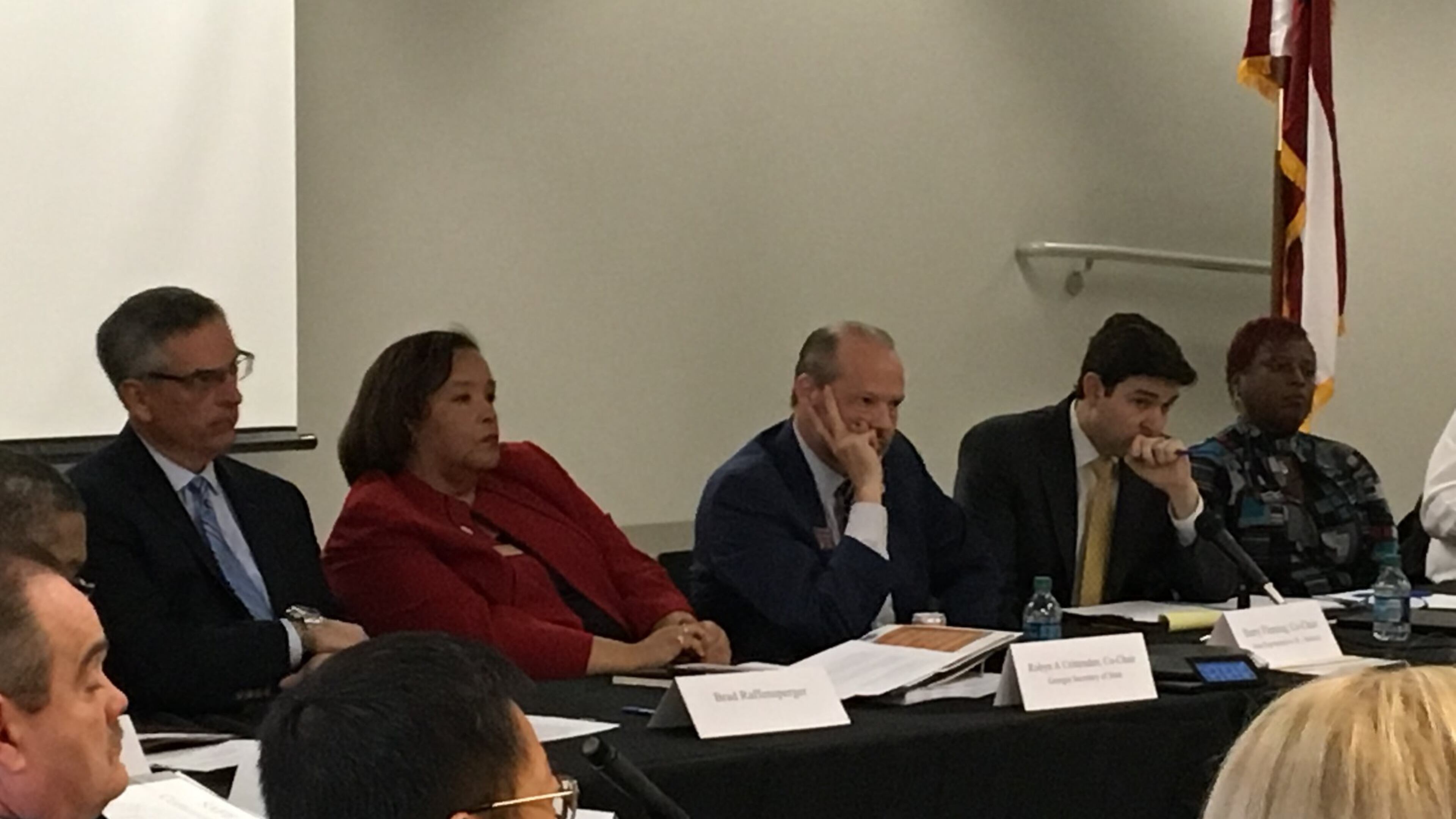Disagreement persists over replacement Georgia voting system

A group responsible for vetting a more secure and trustworthy Georgia voting system struggled Wednesday to reach agreement over whether to pursue hand-marked paper ballots or touchscreen machines that print ballots.
The group of election officials, state lawmakers, political party representatives and voters debated the state's options to replace its 16-year-old electronic voting machines but didn't make any decisions Wednesday.
The Secure, Accessible & Fair Commission, created by Gov.-elect Brian Kemp last spring when he was secretary of state, plans to hold its final meeting in early January to make recommendations to the Georgia General Assembly.
Though the commission failed to reach a consensus, its members heard overwhelming support from the public for hand-marked paper ballots, which voters would bubble in with a pen and then insert into scanning machines. Of 27 people who spoke during the public comment portion of the meeting, only one — a county elections director — said he wanted a system other than manually filled-in paper ballots.
“People have lost trust in Georgia’s voting system,” Vicki Krugman, a voter from Oconee County, told the commission during its meeting in Macon. “We need hand-marked ballots. It’s the only verifiable system. We’re in an era of some very serious problems with hacking, and they’re not going away.”
Georgia's current direct-recording electronic voting system lacks a paper ballot that could be verified by voters and checked by election officials in the event of a recount or audit. There are only four states left that rely entirely on election systems that lack a voter-verified paper audit trail — Georgia, Delaware, Louisiana and South Carolina.
Pending lawsuits question the integrity of the state's electronic voting machines, saying they could be tampered with or hacked without the knowledge of election officials or the ability to check results for accuracy. A federal judge this fall found that the voting machines posed a "concrete risk" but declined to order a switch to paper ballots just a few weeks before November's election.
Supporters of ballot-marking devices, which use a touchscreen for voters to record their choices before printing out their selections on a paper ballot, say they are easy to use and prevent voter errors, such as circling a candidate’s name instead of filling in a bubble next to the candidate’s name.
“I am an advocate for ballot-marking devices for all voters. It creates a uniform voting experience and guides the voters through the process,” said Bartow County Election Supervisor Joseph Kirk, the lone member of the public to speak in support of that method.
Hand-marked paper ballots could cost taxpayers roughly $30 million, while ballot-marking devices would cost at least $100 million.
Members of the commission were more divided than the general public.
Wenke Lee, a Georgia Tech professor and the only cybersecurity expert on the commission, said many voters wouldn’t take the time to check their ballots for accuracy after they’re printed by a ballot-marking device. He said hand-marked paper ballots provide a clearer indication of voters’ intent.
“The consensus from the scientists and cybersecurity experts is that hand-marked paper ballots is the best solution right now,” Lee said. “From a cybersecurity point of view, that’s the best available solution. If we say we don’t want that, we need to justify why.”
Much of the opposition to hand-marked paper ballots came from county election officials who said voters are more comfortable with an election system that closely reflects what they’re used to using.
Evans County Election Superintendent Darin McCoy said ballot-marking devices would provide a paper ballot, and voters should take responsibility for checking it.
“If we provide the voter with a paper ballot of what they’ve done and they don’t take the time to look at it to verify, there’s nothing we can really do,” McCoy said. “If they don’t want to take the time to do that and just drop it in the box, we can’t help them.”
Several voters told the commission they're concerned that machine-printed paper ballots could still be vulnerable to hacking. Ballot-marking devices generally print ballots that include a bar code that can be read by tabulation computers, but not by voters themselves. A few people wore yellow "Ban the barcode" T-shirts as they made comments to the commission.
“The bar codes that are supposed to signify something as simple as the precinct number could introduce malware into a digital system,” said Liz Throop of DeKalb County. “We want to move ahead, but it’s important to get this stuff right.”
The commission appeared to agree on several other topics.
Commission members said they want a new voting system that includes a paper trail in place before the 2020 presidential election. They also want some kind of audits written into state law to ensure the accuracy of election results.
When the commission next meets in a few weeks, it’s expected to vote on recommendations for the General Assembly. Then state legislators would introduce bills to rewrite Georgia’s election laws and buy a statewide voting system.
Stay on top of what's happening in Georgia government and politics at ajc.com/politics.



